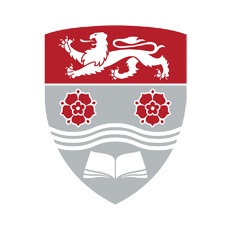fees waived
Electronic and Electrical Engineering, BEng (Hons)
Lancaster University, United Kingdom
Subject ranking
UK / USNews 4th
UK / ARWU 6th
UK / Guardian 20th
Costs
food & rentS$16.8K / year
Entry requirements
Scholarships
Limited quantity
Limited quantity
Limited quantity
Information
Code
Intakes
Website (External)
Programmes
Information
Duration
2027
Our design-based degree teaches the essentials of electronic and electrical engineering, allowing you to engage with creativity and develop a range of practical and professional skills, which will create opportunities in a range of industries.Electronic and electrical engineering is concerned with the broad application of electricity and electronics, ranging from small intelligent microprocessor based systems through to large scale power generators. Virtually every sector needs and uses electronic or electrical engineering and it is difficult to think of an application where it does not have influence.You will benefit from our research informed teaching, which is a key strength of this programme. You will join a thriving academic department that makes use of our expertise in microelectromechanical smart systems; novel electromagnetics; radio frequency engineering; and millimetre waves with THz signals. Through this programme, you will be exposed to our work with organisations such as CERN and the European Space Agency.The programme begins with a broad based common first year. You will learn about subjects such as heat transfer and manufacturing, which form a key requirement of modern electronic systems. Our Electronic and Electrical Engineers work alongside other disciplines, reflecting very much how you would operate in industry, equipping you with interdisciplinary project, communication and professional skills to allow you to excel in your professional career.Specialist modules in electronic and electrical engineering continue in the second year, where you will build your familiarity and practical experience in widely-used programming languages and software development environments, reinforcing your technical knowledge. This year, you will complete a small group project, where you will apply your specialist knowledge within an interdisciplinary team.On this programme, you may decide to spend a year in industry, gaining valuable experience and enhancing your employability. We have extensive links built through our leadership in research and have students undergoing placements with multinational corporate companies through to smaller specialist SMEs. We would recommend the most appropriate time to do this would be at the end of year two, once you have gained a reasonable amount of engineering knowledge.In third year, you will start your individual project: a substantial piece of research and investigation into a topic of your choice, but often linked with industry or one of our research groups. The project period covers the entire academic year, with an intensive period following exams to finalise results and present the findings professionally. Previous examples include: remote moisture sensing for internet of things; wearable antennas for medical body area network; low carbon shipping through improved electric propulsion; and energy storage and development of an electrical storm tracker.Third year also continues the management skills theme, which is essential to modern engineering. You will develop your knowledge in company finance and aspects of law, human resource management and industrial organisation. You will also receive an overview of environmental reporting, quality and safety management.The course is accredited by the Institution of Engineering and Technology (IET) on behalf of the Engineering Council for the purposes of fully meeting the academic requirement for registration as an Incorporated Engineer and partly meeting the academic requirement for registration as a Chartered Engineer. It provides a sound foundation in crucial aspects in the design and manufacture of future systems in the medical, environmental, energy, transport, communications and ICT markets. Teaching is delivered by world-class academics and shaped by their outstanding research output. You will gain hands-on experience with modern facilities and an array of high-quality equipment in our state-of-the-art Engineering Building.
A local representative of Lancaster University in Singapore is available online to assist you with enquiries about this course.

